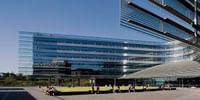At the Third UN World Conference on Disaster Risk Reduction in March 2015, the Sendai Framework for Disaster Risk Reduction was adopted and consequently, disaster reduction protocols are being developed around the world. Closer to home, Christchurch is one of the Rockefeller Foundation?s 100 Resilient Cities and the Canterbury region remains a focus of intense disaster recovery and urban renewal; Canterbury-based students are in a unique position to understand how it can become more disaster-resilient in the future by learning from recent events.
Future professionals engaged in disaster reduction will require a broad and well-founded understanding of the fundamental causes of disasters and of the conditions of both natural systems and human systems that allow disasters to occur. This will require appreciation of the ways in which natural systems can behave, of the systems that society has developed for regulating human behaviour, and of the behaviour of individuals and groups in response to unexpected shocks and stresses. There is thus a need for natural science, for social science, and for political and economic science, in the education of disaster reduction professionals.Master of Disaster, Risk and Resilience (MDRR) students will gain:?an understanding of the natural and societal causes of disasters?the ability to analyse and critique strategies for disaster reduction?experience in applying learning to specific disaster-reduction-related situations?practice in formulating risk communication, risk reduction and resilience strategies and communicating concepts to a wide audience?an understanding of methodologies to build resilience.











